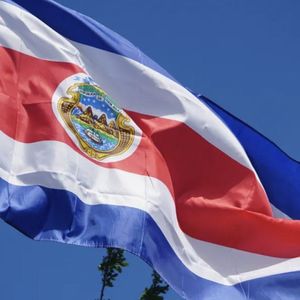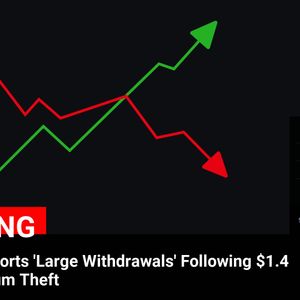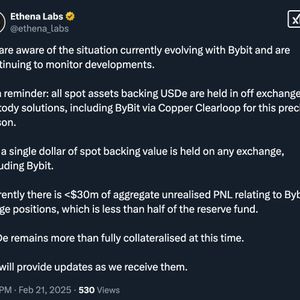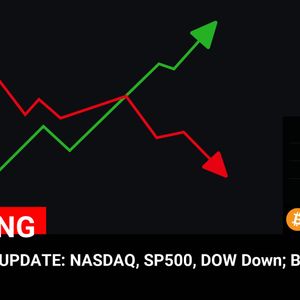In a surprising turn of events that has sent ripples through the cryptocurrency world, South Korea’s Supreme Court has delivered a landmark judgment regarding TerraUSD (UST) and Luna (LUNA). The court’s decision, revealed by local news source Etoday, definitively states that these once-prominent digital assets are not classified as financial investment products or securities under South Korean law. This ruling comes after the dramatic collapse of TerraUSD and Luna in May 2022, an event that wiped out an estimated $40 billion from the crypto market and sent shockwaves across the globe. Let’s dive into the details of this crucial decision and what it signifies for the future of cryptocurrency regulation and the digital asset landscape. What Does the Terra Luna Ruling Actually Mean? To understand the significance of this Terra Luna ruling , it’s important to break down what the Supreme Court’s decision implies. Essentially, by not classifying TerraUSD and Luna as securities, the court is stating that these digital assets do not fall under the purview of South Korea’s Financial Investment Services and Capital Markets Act. This act governs the issuance and trading of financial investment products, providing a framework for investor protection and market oversight. Here’s a simplified breakdown: Not Securities: The core finding is that TerraUSD and Luna are not legally defined as securities in South Korea. Impact on Regulation: This means existing securities laws and regulations do not automatically apply to these specific cryptocurrencies. Lower Court Influence: This Supreme Court decision sets a precedent and is likely to influence ongoing and future legal disputes in lower South Korean courts involving similar digital assets. This ruling is a significant departure from potential expectations within the crypto industry, especially considering the global scrutiny on stablecoins and their regulatory status after the crypto market crash of 2022. The Legal Battleground: South Korea Crypto Law and Terraform Labs The legal journey leading to this Supreme Court verdict has been ongoing for years. It’s intertwined with the legal battles of Daniel Shin, co-founder of Terraform Labs, the entity behind TerraUSD and Luna. Let’s revisit the timeline of events: November 2022: A Seoul court initially rejected a request from prosecutors to confiscate assets belonging to Daniel Shin. February 2023: Prosecutors appealed this decision, but the same court reaffirmed its initial stance. Appeals Court Rationale: Judges in the appeals court highlighted that the prosecution’s evidence was insufficient to categorize Luna as a “financial investment product” under the existing South Korea crypto law , specifically the Financial Investment Services and Capital Markets Act. Three Years in the Making: This ruling culminates three years of legal proceedings, indicating the complexity and deliberation involved in classifying novel digital assets within existing legal frameworks. The court’s consistent stance underscores a critical point: the existing legal definitions may not neatly encompass the unique characteristics of cryptocurrencies like TerraUSD and Luna. This raises questions about the adequacy of current laws in addressing the evolving landscape of digital finance. Why Does Cryptocurrency Regulation Matter in South Korea? Cryptocurrency regulation is a hot topic globally, and South Korea is no exception. As a nation with a high rate of cryptocurrency adoption and trading activity, the regulatory framework in South Korea has far-reaching implications. Here’s why it’s so important: Aspect Significance Investor Protection Regulations are designed to safeguard investors from fraud, market manipulation, and excessive risk. Classifying crypto as securities often brings stricter disclosure requirements and oversight. Market Stability Clear rules can contribute to a more stable and predictable market environment, reducing volatility and fostering trust. Innovation & Growth Balanced regulation aims to encourage innovation in the crypto space while mitigating potential risks. Overly strict regulations can stifle growth, while lax rules can lead to instability. Taxation & Compliance Regulatory clarity is essential for taxation purposes and ensuring compliance with financial laws, preventing illicit activities like money laundering. The Terra Luna ruling , by stating these assets are not securities, potentially shifts the regulatory approach in South Korea, at least for these specific types of cryptocurrencies. It might signal a need for new, tailored regulations rather than fitting crypto into existing securities laws. Stablecoin Securities: A Global Regulatory Puzzle The question of whether stablecoin securities or not is a global regulatory puzzle. Stablecoins, designed to maintain a stable value (often pegged to fiat currencies like the US dollar), have come under intense scrutiny from regulators worldwide. Key questions being debated globally include: Are stablecoins securities? Different jurisdictions are taking varied stances. Some are leaning towards classifying certain stablecoins as securities, especially algorithmic stablecoins like TerraUSD that rely on complex mechanisms to maintain their peg. What regulatory framework is appropriate? Should stablecoins be regulated under existing securities laws, or do they require a new, bespoke regulatory framework? What are the risks? Regulators are concerned about risks related to stablecoin reserves, potential for runs (similar to bank runs), and their role in the broader financial system. South Korea’s Supreme Court decision adds another layer to this global debate. By explicitly stating TerraUSD and Luna are not securities, it diverges from potentially stricter interpretations in other jurisdictions and may influence how other countries approach the regulation of similar digital assets. Impact of the Crypto Market Crash and Future Implications The crypto market crash of May 2022, triggered by the collapse of TerraUSD and Luna, served as a stark reminder of the risks inherent in the cryptocurrency market. This event undoubtedly amplified regulatory scrutiny globally and has shaped the ongoing discussions around crypto regulation. Looking ahead, the South Korean Supreme Court’s ruling could have several implications: Precedent Setting: This ruling could set a precedent in South Korea, making it more challenging to classify other cryptocurrencies as securities under existing laws. Regulatory Rethink: It might prompt South Korean regulators to consider developing new, specific regulations for cryptocurrencies that are distinct from traditional securities laws. Global Influence: The decision could influence regulatory discussions in other countries grappling with how to classify and regulate digital assets. Investor Awareness: It underscores the importance of investor awareness and due diligence in the cryptocurrency market, particularly concerning assets that are not regulated as securities and may lack traditional investor protections. Navigating the Evolving Crypto Regulatory Landscape The South Korean Supreme Court’s Terra Luna ruling is a pivotal moment in the ongoing evolution of cryptocurrency regulation . It highlights the complexities of applying traditional financial laws to the novel world of digital assets and underscores the need for careful consideration and potentially tailored regulatory approaches. As the crypto landscape continues to evolve at a rapid pace, staying informed and understanding these regulatory developments is crucial for anyone involved in or interested in the cryptocurrency market. To learn more about the latest cryptocurrency regulation trends, explore our article on key developments shaping crypto market regulation.



















